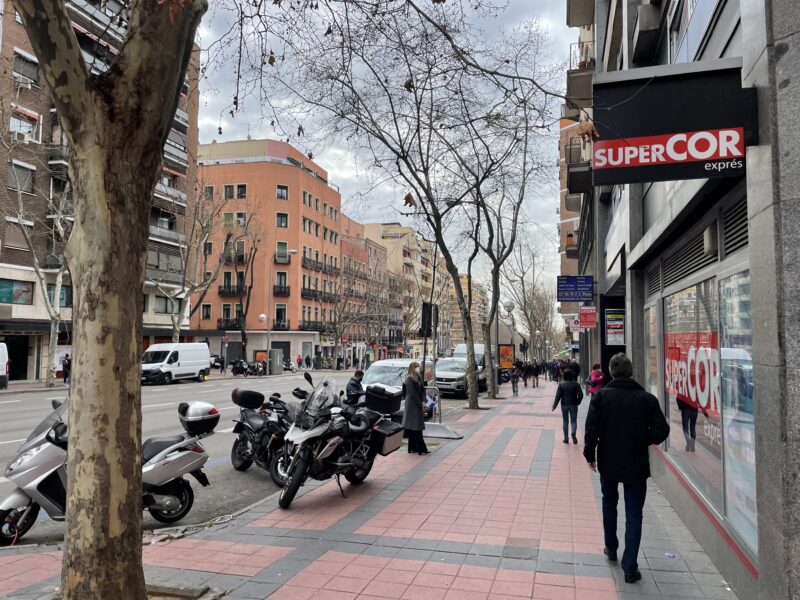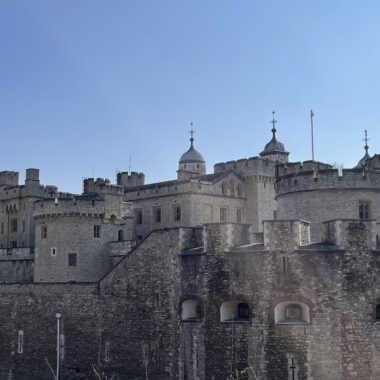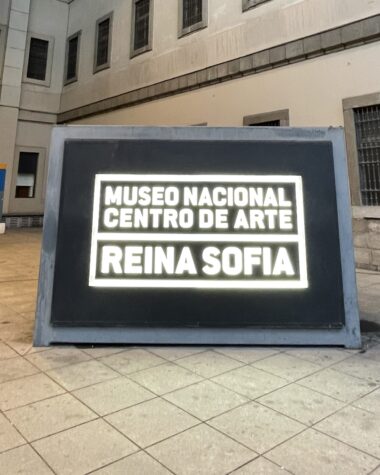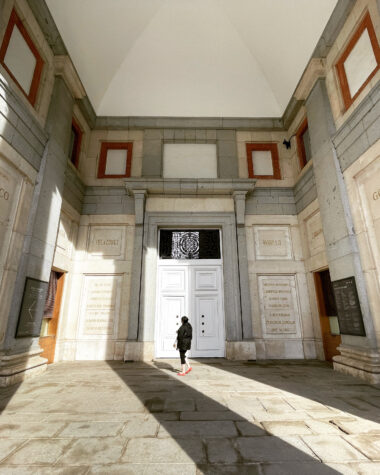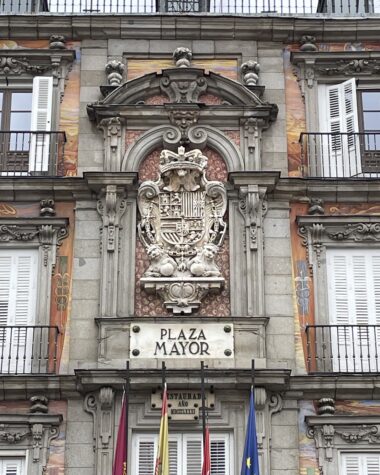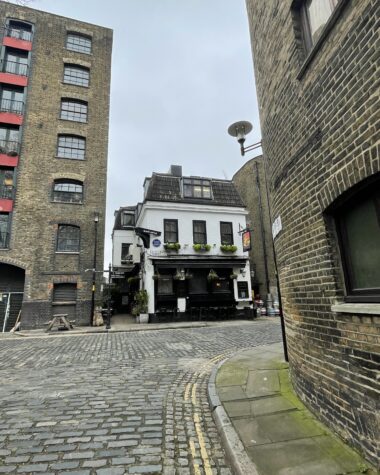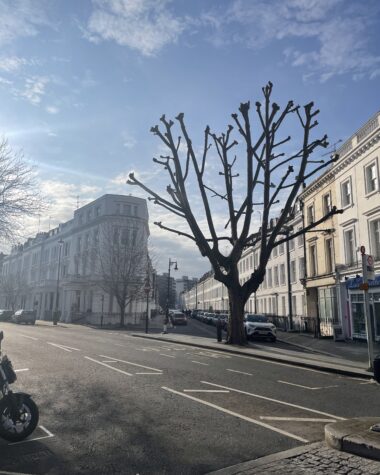Getting to Madrid
Wednesday was our last day in London. Our flight to Madrid was just after noon, so we didn’t have to wake up in any asscracks to get to our flight. Our journey there was pretty uneventful, save my ticket not working at the gate to the train platform. Cris’ worked, and she rushed on to the platform, not noticing I was stuck at the turnstile. Fortunately, I wasn’t the only person with this problem, and there was an attendant nearby so she let me through. I did have a slight moment of panic, because the station is extremely busy, and Cris was instantly lost in a sea of people. Then I reminded myself we’re going to the same destination. I quickly caught up to Cris and we boarded the train to Gatwick Airport. It’s about a 35 minute ride from Victoria station. We got some breakfast at the airport and headed out on the 2-2.5 hour flight to Madrid. We arrived 20 minutes early.
Arriving at our AirBNB

This time we had an AirBNB, a 1 bedroom apartment in the Atocha neighborhood, not far from the Golden Triangle of Art and other key locations like Plaza Mayor and the Royal Palace of Madrid.
Getting Our Bearings
Our apartment is great. A little 1 bedroom with a washer, kitchen, and full bathroom. It’s been tastefully renovated and the owner/manager is very professional and easy to deal with.
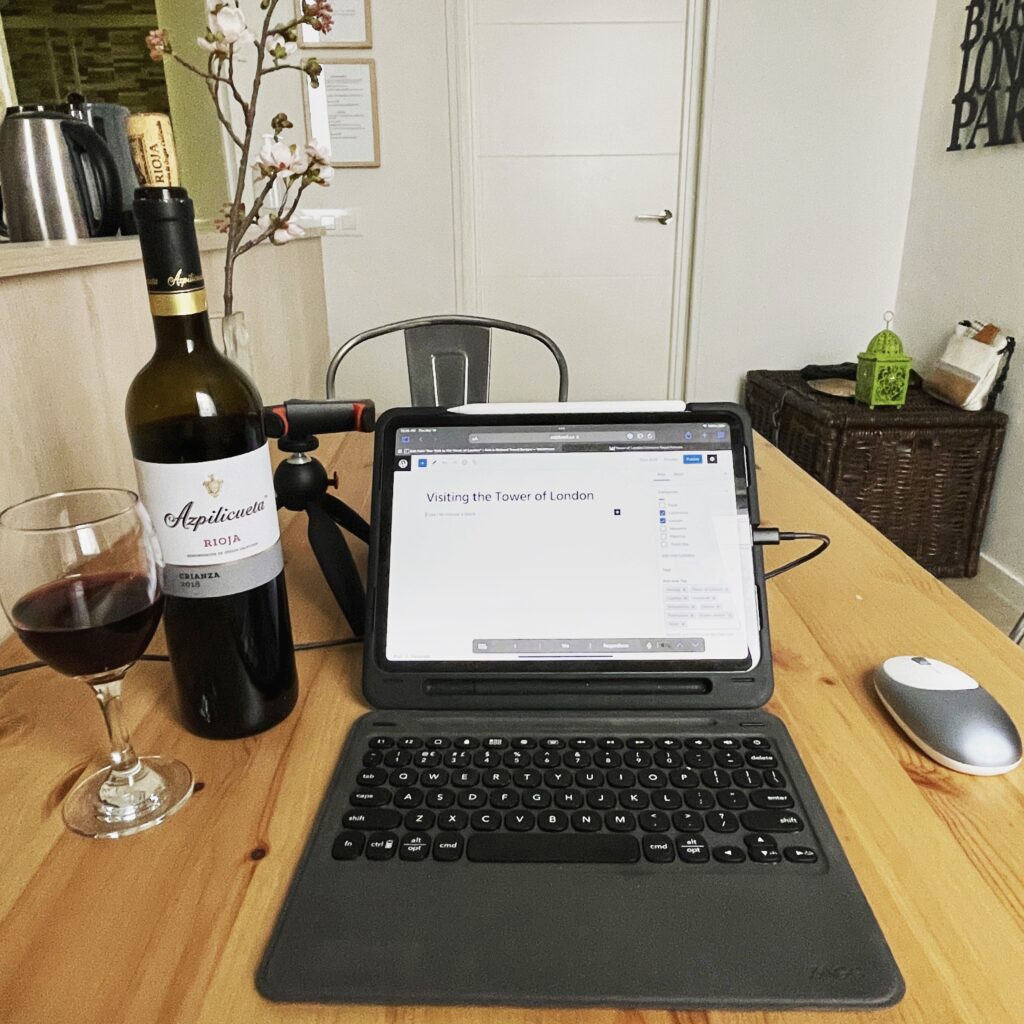
Cris wasn’t feeling too well the first day so she stayed in and rested. I decided to take the time to explore the local neighborhood and find some key things: a grocery store & a laundromat / dry cleaner. Fortunately both are within a couple blocks of our place. It’s a really great location!
I enjoy having an actual apartment with a kitchen, because we can get some groceries for a quick snack and to save time with breakfast in the morning.





Navigating in Spanish
One thing I’ve found more challenging than a typical Mexico vacation is doing everyday life in Spanish, like getting groceries or taking my sweater to the dry cleaners. In a place like Mexico or on resorts or other “high tourist” areas, transactions are always very basic (amount, pay, bye) and most operators speak some English by necessity. But when you live more local like we are on this visit, most clerks in our neighborhood don’t actually speak any English at all. For the most part, you can figure it out. I know the basics of Hello, Goodbye, Beers, Bathroom. The usual Mexico toolkit. And you can point to things, make gestures, or even get your phone to speak a phrase for you.
But I felt really at a disadvantage when the sweet little old lady who ran the dry cleaners was trying to spark up light conversation and I had no clue what she was saying. It broke my heart because I really wanted to have a conversation with her. She seemed like a hoot and being her age, she probably had some great stories to share.
Or going to the market. Of course, they’re asking you about membership cards and telling you about 2 for 1 promotions (the usual market fair), or even asking you if you want a bag (Bolsa!), and all you can say is ”no hablo espanol… tarjeta? Visa?”
Aka, let me pay so I can end this torture for both of us.
But the truth is you start to feel like an idiot pretty quickly after doing that a few times.
And maybe this is one way travel helps broaden your horizons and build empathy. Not speaking the dominant language makes you the minority. I think it gives you a better perspective of what it’s like to try to move somewhere new and make a life there. It’s frustrating, and honestly—very isolating.
This is not my first time feeling this way, mind you. I came to Canada from Poland when I was 3 years old. I didn’t speak a lick of English when I first arrived. I remember so clearly the first day I ran into a neighbor who started speaking to me, and I burst into tears because I couldn’t figure out why I didn’t understand what he was saying to me. I’m sure he was just saying hello and making friendly talk, but not understanding it—or even why I couldn’t understand it—really confused me. My family was quite literally the ”come to Canada with 20 bucks in your pocket” story. We were political refugees of the soviet regime, when Jaruzelski declared martial law in 1981 and imprisoned my father because was part of Solidarity. Coming here, not knowing the language, and being poor meant I was bullied and teased in school on a daily basis. So I really do understand what it feels like to be dirt poor and feel isolated and alone and unliked in an unfamiliar place. I still carry baggage with me from that experience. That’s why I empathize with immigrants and refugees, whether they moved out of a desire to improve their conditions, or because they had no choice—like the families of Ukraine.
Slava Ukraini. 🇺🇦
